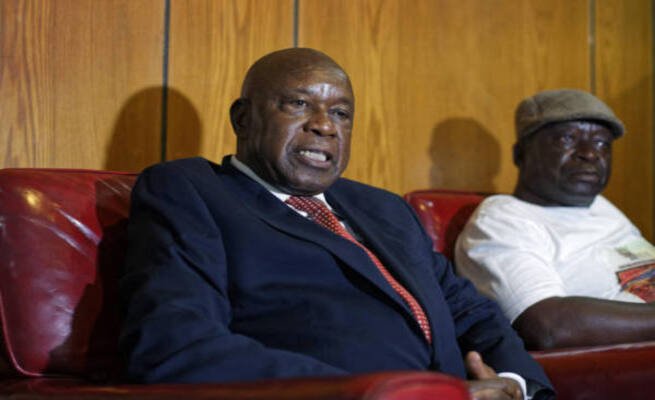The Zimbabwe War Veterans Association (ZNLWVA) is currently experiencing intense internal power struggles as a “new” leadership claims to have ousted the executive led by War Veterans Minister Christopher Mutsvangwa. Mutsvangwa had been in charge of the association for the past decade.
Recently, a new executive, headed by Andrease Mathibela, emerged, asserting that they held a congress where they were elected into office. Other members of the new executive include Edward Dube as secretary-general, Livingstone Chineka as finance secretary, Aloise Chimeri as information secretary, and Karen Kazingizi as welfare secretary.
However, Blessed Runesu Geza, who allegedly became the vice-president of the association in the new executive, distanced himself from the group, stating that he was not part of it and that their congress was conducted informally on WhatsApp.
Members of the Mutsvangwa executive, such as Jowell Mureremba, the commissar, and interim spokesperson Sam Parirenyatwa, dismissed the Mathibela executive as illegitimate. They emphasized the need for a proper congress and reiterated their loyalty to Zanu PF and Zapu, the political parties they associate with.
Mureremba mentioned that they had received approval to hold an elective congress and that preparations were underway to announce the date.
Mathibela, however, stood firm in his position as the new chairperson. He criticized the Mutsvangwa executive for allegedly neglecting the welfare of ex-combatants while living luxuriously. Mathibela expressed concerns about the economic hardships faced by war veterans and the concentration of wealth in the hands of a few individuals.
Karen Kazingizi, the welfare secretary of the new executive, emphasized their commitment to improving the well-being of liberation fighters and stated that they were operating with a clear roadmap based on congress resolutions.
The ZNLWVA has historically been a significant support base for Zanu PF during elections and has been accused of leading violent campaigns against the opposition. They played a crucial role in the farm invasions in 2000 and the events surrounding the November 2017 coup that brought President Emmerson Mnangagwa to power.











